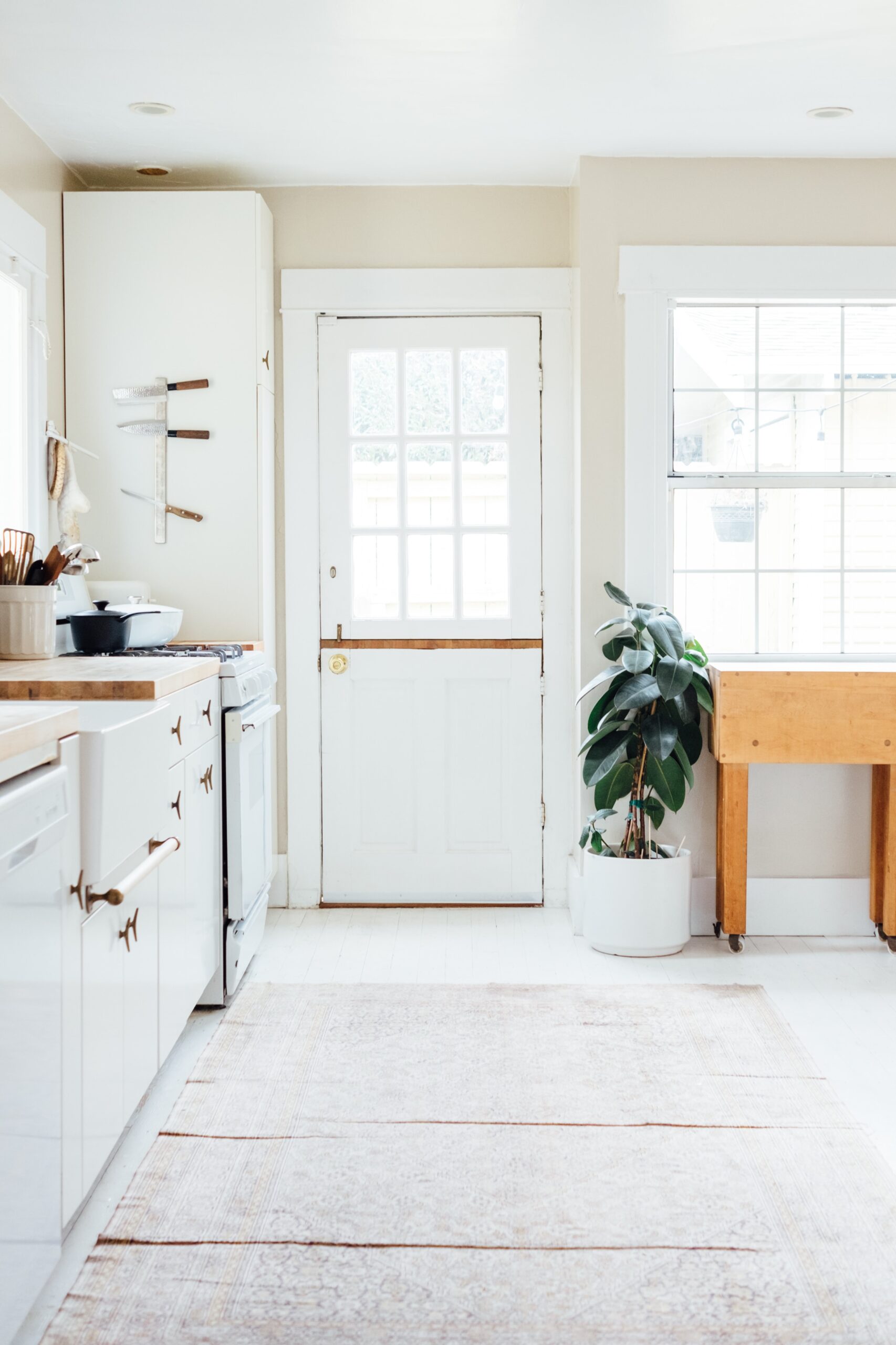Are you ready to take the leap into homeownership? Buying your first home is an exciting milestone, but it’s important to be financially prepared before diving in. From saving for a down payment to improving your credit score, there are several crucial steps you should take to ensure a smooth home-buying process. In this article, we will guide you through the essential financial preparations you need to make before purchasing your first home. Get ready to embark on the exciting journey of becoming a homeowner!
1. Assess your financial readiness
Create a budget
Before you dive into the process of buying your first home, it’s important to assess your financial readiness. One of the first steps in doing so is creating a budget. Take a close look at your income and expenses to determine how much you can comfortably afford to allocate towards your future home. Consider all your monthly bills, including utilities, groceries, transportation, and any other necessary expenses. This will help you understand what you can afford in terms of mortgage payments and other homeownership costs.
Evaluate your savings
Saving up for a down payment is an essential part of the home buying process. Take the time to evaluate your current savings and determine how much you have available to put towards your down payment. Consider any other savings goals you may have and decide how much of your savings you are willing to allocate towards your home purchase. It’s important to strike a balance between saving for your future home and maintaining a healthy emergency fund and other financial priorities.
Review your credit score
Your credit score plays a significant role in determining the interest rate you’ll be offered on your mortgage. Before you start the home buying process, review your credit score to ensure it is in good shape. Obtain a copy of your credit report from one of the major credit bureaus and review it carefully. Look for any errors or discrepancies that may be negatively impacting your score. If you spot any errors, be sure to dispute them promptly. It’s also a good idea to make all your payments on time and keep your credit utilization low to maintain a healthy credit score.
Calculate your debt-to-income ratio
Another important aspect of your financial readiness is your debt-to-income ratio. This ratio compares your monthly debt payments to your gross monthly income and helps lenders determine your ability to handle additional debt. Calculate your debt-to-income ratio by adding up all your monthly debt payments, including credit card payments, car loans, student loans, and any other debts, and dividing that by your gross monthly income. Aim for a debt-to-income ratio below 43%, as this is generally considered the maximum threshold for most mortgage lenders.
2. Determine your financial goals
Set a budget for your home purchase
Once you have assessed your financial readiness, it’s time to determine your financial goals for buying your first home. One of the first steps in doing so is setting a budget for your home purchase. Consider the maximum amount you can afford to spend on your new home, keeping in mind not just the upfront cost but also the ongoing homeownership costs. This will help you narrow down your options and focus on properties that fall within your budget.
Decide on a down payment amount
Saving for a down payment is an important part of financially preparing for your first home purchase. While the traditional down payment amount is 20% of the home’s purchase price, there are other options available, such as FHA loans that require a lower down payment. Decide on the down payment amount that works best for you and your financial situation. Remember that a higher down payment can result in a lower monthly mortgage payment and potentially better loan terms.
Consider future expenses
When determining your financial goals, it’s essential to consider not just the present but also the future expenses associated with homeownership. Think about potential expenses such as property taxes, homeowners’ insurance, HOA fees, and maintenance costs. It’s important to account for these expenses in your budget to ensure you can comfortably afford your monthly housing costs.

3. Establish an emergency fund
Save for unexpected expenses
Establishing an emergency fund is crucial for any financial situation, and buying a home is no exception. Unexpected expenses can arise, such as medical emergencies, car repairs, or home repairs, and having a well-funded emergency fund can provide you with peace of mind and financial security. Aim to save at least three to six months’ worth of living expenses in your emergency fund before you purchase your first home.
Set aside funds for home repairs
Homeownership comes with its fair share of maintenance and repairs. While it’s impossible to predict every issue that may arise, it’s wise to set aside funds specifically designated for home repairs. This way, when an unexpected repair occurs, you won’t be caught off guard and can cover the costs without dipping into your emergency fund or going into debt.
4. Save for a down payment
Determine the amount you need
Saving for a down payment is one of the most significant financial hurdles when buying a home. Determine the amount you need for your down payment based on your preferred down payment percentage and the purchase price of the home you are considering. Make a savings plan and set monthly or weekly saving goals to help you reach your desired down payment amount within a specific timeframe.
Explore down payment assistance programs
If saving for a down payment seems overwhelming, don’t worry – there are down payment assistance programs available that can help. Research and explore the various programs that may be available in your area. These programs provide financial assistance, grants, or low-interest loans to eligible homebuyers, making it easier to achieve your down payment goal.
Set up a separate savings account
To stay organized and track your progress towards your down payment goal, consider setting up a separate savings account specifically for your home down payment. This will help you visually see your progress and avoid mixing your home savings with your regular day-to-day finances. Automate your savings by setting up automatic transfers from your checking account to your down payment savings account, making it easier to stay consistent with your saving efforts.

5. Improve your credit score
Review your credit report
Before applying for a mortgage, it’s crucial to review your credit report in detail. Look for any errors, outdated information, or negative marks that may be affecting your credit score. Dispute any inaccuracies and work on resolving any outstanding issues. Regularly checking your credit report allows you to stay proactive and ensure your credit score is in the best possible shape before applying for a mortgage.
Pay off high-interest debts
High-interest debts can negatively impact your credit score and affect your ability to secure a favorable mortgage loan. Take the time to pay off any high-interest debts you may have, such as credit card balances or personal loans. Prioritize paying off these debts as it will not only improve your credit score but also free up extra funds that can be allocated towards your savings goals.
Avoid new credit applications
When you’re in the process of preparing to buy your first home, it’s essential to avoid applying for new credit. Multiple credit inquiries within a short span of time can negatively impact your credit score. Lenders may interpret these inquiries as a sign of financial distress or an increased risk of default. It’s best to wait until after you have successfully secured your mortgage before considering any new credit applications.
6. Research mortgage options
Understand different loan programs
Before diving into the mortgage application process, take the time to research and understand the different types of loan programs available. There are various options to choose from, such as conventional loans, FHA loans, VA loans, and USDA loans. Each loan program has its own eligibility criteria, down payment requirements, and interest rates. Understanding the differences will help you make an informed decision that aligns with your financial situation and goals.
Compare interest rates
The interest rate you receive on your mortgage will significantly impact your monthly mortgage payment and overall cost of homeownership. Shop around and compare interest rates from different lenders to ensure you secure the best possible rate. Even a slight difference in interest rates can make a significant impact on your monthly budget and long-term financial goals.
Get pre-approved for a mortgage
Once you have a clear understanding of your financial readiness and have researched different mortgage options, consider getting pre-approved for a mortgage. This involves providing your financial information to a lender who will assess your creditworthiness and give you a preliminary determination of the loan amount you may be eligible for. Getting pre-approved will not only help you understand your budget but also make you a more attractive buyer to sellers.

7. Budget for additional costs
Consider closing costs
When preparing your budget for buying your first home, it’s essential to factor in closing costs. Closing costs typically include fees such as appraisal fees, loan origination fees, title search fees, and attorney fees, among others. These costs can range from 2% to 5% of the home’s purchase price. Be sure to consult with your real estate agent or lender to understand the estimated closing costs for your specific situation and include them in your budgeting process.
Account for property taxes and insurance
As a homeowner, you will be responsible for property taxes and homeowners’ insurance. These costs vary depending on your location and the value of your home. Research the property tax rates in the area you are considering buying and estimate the annual cost. Similarly, shop around for homeowners’ insurance quotes to get an idea of the monthly or annual premium you can expect to pay. Including these costs in your budget will ensure you can comfortably afford your monthly housing expenses.
Factor in moving expenses
Moving can be a significant expense, especially if you’re relocating to a new area or downsizing. Take into account the costs associated with hiring professional movers, renting a moving truck, or purchasing packing supplies. If you plan on making any renovations or purchasing new furniture for your new home, budget for those expenses as well. By considering these moving-related costs in advance, you can avoid any financial surprises and plan accordingly.
8. Explore first-time homebuyer programs
Research state and local assistance programs
Many states and local governments offer various assistance programs specifically designed to help first-time homebuyers. These programs may provide down payment assistance, grants, or favorable loan terms. Take the time to research what programs are available in your area and determine if you meet the eligibility requirements. Taking advantage of these programs can make homeownership more attainable and financially manageable.
Look into federal programs
In addition to state and local programs, there are also federal programs available to help first-time homebuyers. Programs such as FHA loans, VA loans, and USDA loans offer flexible eligibility requirements and reduced down payment options. Explore these programs and determine if you meet the criteria, as they can provide valuable opportunities to secure a mortgage with more favorable terms.
Determine eligibility requirements
Before applying for any first-time homebuyer programs, be sure to thoroughly review the eligibility requirements. These requirements may include income limits, credit score thresholds, and specific property criteria. Understanding the eligibility requirements in advance will help you determine which programs you qualify for, allowing you to focus your efforts and maximize your chances of obtaining financial assistance.

9. Consult with a professional
Seek guidance from a real estate agent
Buying a home for the first time can be overwhelming, especially with all the financial considerations involved. That’s why it’s important to seek guidance from a professional real estate agent. A knowledgeable agent can help you navigate the homebuying process, provide valuable insights, and negotiate on your behalf. They will work with you to understand your financial goals, budget, and preferences, helping you find the best home for your needs.
Work with a mortgage lender
Alongside a real estate agent, it’s essential to work with a reputable mortgage lender who can guide you through the mortgage application and approval process. A mortgage lender will assess your financial situation, help you determine the loan program that suits you best, and guide you through the application process. They will ensure you understand the terms of the mortgage and help you secure the financing you need to purchase your first home.
Consider hiring a financial advisor
If you have complex financial circumstances, are unsure about creating a solid financial plan, or need help managing your finances to prepare for homeownership, consider hiring a financial advisor. A financial advisor can provide personalized guidance and advice based on your specific financial goals and situation. They can help you create a comprehensive financial plan and assist you in making informed decisions throughout the home buying process.
10. Monitor and adjust your financial plan
Regularly review your budget
As you progress through the homebuying process, it’s important to regularly review and update your budget. Track your income and expenses to ensure you’re on track with your savings goals and monthly budget. Adjust your budget as needed to accommodate any unexpected expenses or changes in your financial situation. By staying on top of your budget, you’ll have a better understanding of your financial health and be better prepared for homeownership.
Track your progress towards savings goals
Keeping track of your progress towards your savings goals is essential to stay motivated and make adjustments as needed. Monitor your savings account regularly and ensure you’re consistently making progress towards your down payment goal. If necessary, reassess your savings plan and consider adjusting your monthly savings contributions to align with your timeline and financial abilities.
Adjust your plan based on changing circumstances
Life is full of unexpected twists and turns, and your financial situation may change over time. It’s important to be flexible and willing to adjust your financial plan as needed. Whether it’s changes in income, unexpected expenses, or revisions to your homeownership timeline, be prepared to adapt and make necessary adjustments to your financial plan. Regularly reassess your goals, budget, and savings plan to ensure you’re on track and adjust accordingly to achieve financial readiness for buying your first home.
By following these steps and taking a proactive approach to financially prepare for your first home purchase, you’ll be well on your way to achieving your homeownership goals. Remember to consult with professionals, such as real estate agents, mortgage lenders, and financial advisors, to guide you through the process and provide expert advice. With careful planning, budgeting, and saving, you’ll be able to make your dream of owning a home a reality. Good luck on your journey towards homeownership!



